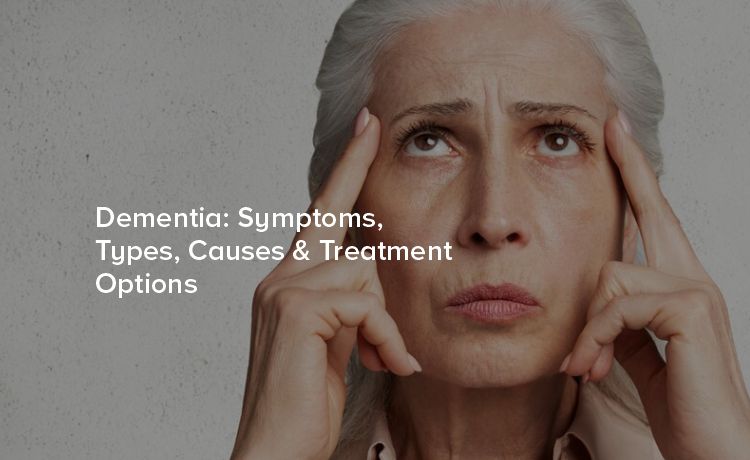
Dementia is a complex and multifaceted condition that affects millions of people worldwide. It encompasses a variety of symptoms and has numerous causes, making it a particularly challenging area of medical science.
Dementia is a general term used to describe a decline in cognitive function severe enough to interfere with daily life. It affects memory, thinking, language, and the ability to carry out everyday activities. While aging is a significant risk factor, dementia is not a normal part of aging. It is a result of damage to brain cells that affects their ability to communicate, leading to impaired cognitive function.
Recognizing the symptoms of dementia early can make a significant difference in the management and quality of life for those affected. Common symptoms include:
Memory Loss: This is often the most noticeable symptom. People may forget recent events or important dates and ask the same questions repeatedly.
Difficulty Communicating: Struggling to find the right words to express thoughts or follow conversations.
Disorientation: Getting lost in familiar places or not knowing the time or date.
Problem-Solving Issues: Difficulty with planning or solving problems, such as managing finances or following a recipe.
Poor Judgment: Making decisions that are out of character, like giving away large sums of money.
Mood Changes: Rapid mood swings, including depression, anxiety, and apathy.
Behavioral Changes: Uncharacteristic behaviors such as aggression or inappropriate social behavior.
Hallucinations and Delusions: Seeing or hearing things that aren't there or having false beliefs.
There are several types of dementia, each with its own set of characteristics. The most common types include:
Alzheimer's disease is the most prevalent form of dementia, accounting for 60-80% of cases. It is characterized by the build-up of amyloid plaques and tau tangles in the brain, which interfere with neuron function and lead to cognitive decline.
Vascular dementia occurs due to reduced blood flow to the brain, often following a stroke or series of mini strokes. It can coexist with Alzheimer's disease and is characterized by difficulties with problem-solving, slower thinking, and a shorter attention span.
Lewy body dementia is caused by abnormal deposits of a protein called alpha-synuclein in the brain. Symptoms include visual hallucinations, fluctuating cognitive ability, and motor symptoms similar to Parkinson's disease.
Frontotemporal dementia affects the frontal and temporal lobes of the brain. It often results in changes in personality, behavior, and language skills. Unlike other forms of dementia, memory is usually less affected in the early stages.
Mixed dementia is a condition where abnormalities characteristic of more than one type of dementia occur simultaneously in the brain. For example, a person might have both Alzheimer's disease and vascular dementia.
Understanding the causes of dementia is essential for developing preventative strategies and treatments. The primary causes include:
Some forms of dementia, like early-onset Alzheimer's disease, have a strong genetic component. Mutations in specific genes can increase the risk of developing dementia.
Lifestyle choices and environmental factors such as smoking, lack of physical activity, poor diet, and excessive alcohol consumption can increase the risk of dementia.
Certain health conditions, including cardiovascular diseases, diabetes, and hypertension, can contribute to the development of dementia. Traumatic brain injuries and chronic sleep disorders are also risk factors.
The risk of dementia increases significantly with age, especially after the age of 65. However, it is essential to note that dementia is not a normal part of aging.
While there is currently no cure for dementia, various treatments can help manage symptoms and improve quality of life. Treatment options include:
Memantine: This medication can help regulate the activity of glutamate, a neurotransmitter involved in learning and memory.
Antidepressants and Antipsychotics: These medications can help manage mood and behavioral symptoms.
Cognitive Stimulation Therapy (CST): A structured program of activities aimed at improving cognitive function and quality of life.
Occupational Therapy: Helps patients maintain independence by teaching them how to adapt their environment and use assistive devices.
Physical Exercise: Regular physical activity can help improve overall well-being and may slow cognitive decline.
Nutritional Support: A balanced diet rich in antioxidants, omega-3 fatty acids, and vitamins can support brain health.
While not all forms of dementia can be prevented, certain lifestyle choices can reduce the risk:
Healthy Diet: A diet rich in fruits, vegetables, whole grains, and lean proteins supports overall brain health.
Regular Exercise: Physical activity improves blood flow to the brain and can reduce the risk of cardiovascular diseases, which are linked to dementia.
Mental Stimulation: Engaging in activities that challenge the brain, such as puzzles, reading, and learning new skills, can help maintain cognitive function.
Social Interaction: Staying socially active can reduce the risk of dementia by keeping the mind engaged.
Avoiding Smoking and Excessive Alcohol Consumption: Both can damage the brain and increase the risk of dementia.
Dementia is a complex condition that affects millions of people worldwide. Understanding its symptoms, types, causes, and treatment options is crucial for managing the disease and improving the quality of life for those affected. While there is no cure, early diagnosis and intervention can make a significant difference. Citizens Specialty Hospital provides the best neurology treatment in Hyderabad.